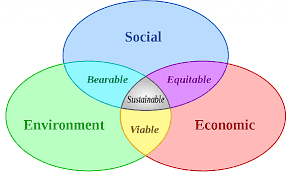Environmental issues play a critical role in regional planning, as they can have significant impacts on the well-being of communities and the health of ecosystems.

There are several key environmental issues that should be considered in regional planning:
- Climate change: Climate change is one of the most pressing environmental issues facing communities worldwide. Regional planning should consider the impacts of climate change, such as sea level rise, increased frequency and intensity of extreme weather events, and changes in precipitation patterns, and develop strategies to mitigate and adapt to these impacts.
- Land use: Regional planning should consider the impacts of land use decisions on the environment, such as habitat loss, fragmentation, and degradation. This can include strategies to protect and restore natural areas, create green infrastructure, and encourage sustainable development practices.
- Water resources: Regional planning should consider the availability and quality of water resources, such as surface water and groundwater, and develop strategies to protect and enhance these resources. This can include strategies to reduce water use, increase efficiency, and improve water quality.
- Air quality: Regional planning should consider the impacts of air pollution on human health and the environment, and develop strategies to reduce emissions and improve air quality. This can include strategies to reduce vehicle emissions, encourage active transportation, and promote clean energy sources.
- Waste management: Regional planning should consider strategies for managing solid waste and hazardous materials, such as recycling, composting, and hazardous waste disposal. This can help reduce the amount of waste sent to landfills and minimize the environmental impacts of waste disposal.
Overall, regional planning should consider the environmental impacts of development and strive to promote sustainable practices that minimize negative impacts on the environment. By considering key environmental issues such as climate change, land use, water resources, air quality, and waste management, regional planners can create strategies that promote a healthy environment and support the well-being of communities.
Important Links